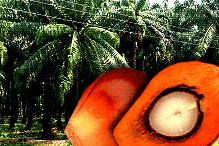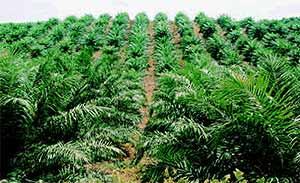Kindly allow me to refer to the letter Palm oil: 'green image' or 'green washing'?
The 10th edition of the Concise Oxford English Dictionary defines ‘green wash’ as ‘disinformation disseminated by an organisation so as to present an environmentally responsible public image’.
So ‘green washing’ can be said to be the unjustified appropriation of environmental virtue by a company, an industry, a government, a politician or even a non-government organisation (NGO) to create a pro-environmental image, sell a product or a policy, or to try and rehabilitate their standing with the public and decision makers after being embroiled in controversy.
The US-based watchdog group CorpWatch, in turn, defines ‘green wash’ as ‘the phenomena of socially and environmentally destructive corporations, attempting to preserve and expand their markets or power by posing as friends of the environment’.
This definition was shaped by the group's focus on corporate behaviour and the rise of corporate green advertising at the time. However, governments, political candidates, trade associations and NGOs have also been accused of green washing.
 In a recent article in the
Asian Wall Street Journal
, Tom Wright claimed that the misguided decision of the UK’s Advertising Standards Authority to label the Malaysian Palm Oil Council’s advertisement - which appeared on satellite channels across Europe, Asia and the US - as “misleading” was an example of a green washing ad being taken to task, since the advertisement claimed that the industry was ‘good for the environment’.
In a recent article in the
Asian Wall Street Journal
, Tom Wright claimed that the misguided decision of the UK’s Advertising Standards Authority to label the Malaysian Palm Oil Council’s advertisement - which appeared on satellite channels across Europe, Asia and the US - as “misleading” was an example of a green washing ad being taken to task, since the advertisement claimed that the industry was ‘good for the environment’.
It featured a man jogging through a natural rainforest, interspersed with shots of palm oil plantations and wildlife followed by a voiceover: “Malaysian palm oil. Its trees give life and help our planet breathe.”
I have viewed the advertisement on numerous occasions on my sat-tv after a hard day’s work in my home office in Bethesda, Maryland, and have yet to hear a single mention that oil palm plantations are “superior” to the natural rainforests. Nowhere is such a claim made.
However, the fact remains that oil palm plantations typically plant the tree crop in a neat but fairly dense formation which enables the plantations to serve as a planted forest, and which makes these plantations far superior to all other oilseeds in sequestering carbon dioxide.
Green cover preserved
I have visited oil palm plantations in Malaysia. The one thing that strikes me is that it is virtually impossible to take a meaningful jog through a plantation without eventually coming face to face with secondary jungle . Coming across wildlife is also not that rare an occurrence as anyone familiar with the plantations, and the secondary jungle appurtenant to these, will attest.
 That is how well preserved the green cover in Malaysia is - oil palm, while grown only in logged- over areas and legitimately endowed agricultural land, sits cheek to jowl with the tropical jungle. So the ad is both visually, factually and technically accurate, as oil palm trees do “give life and help our planet breathe”.
That is how well preserved the green cover in Malaysia is - oil palm, while grown only in logged- over areas and legitimately endowed agricultural land, sits cheek to jowl with the tropical jungle. So the ad is both visually, factually and technically accurate, as oil palm trees do “give life and help our planet breathe”.
The same claim cannot be made by the competing oilseeds such as soybean, rapeseed and sunflower, at least, not in the sense of carbon dioxide sequestration. Moreover, these competing oil seeds are not tree crops. They are annual crops which require annual harvesting, fallow lies and replanting which can never hope to replicate oil palm’s role in carbon dioxide sequestration.
By contrast, oil palm trees are perennial crops that, once planted, remain productive and are not cut down for 20-30 years. This enables plantations to sequester carbon dioxide and produce oxygen which helps the planet breathe, at least on a far greater scale than the competing oilseeds.
That the UK Advertising Standards Authority should rule the ads “misleading” is so baffling that the Palm Oil Truth Foundation has to ask if the Authority is beholden to the competing oilseed lobbies in Europe, as has been suggested by various quarters.
Could it be symptomatic of the need to preserve western hegemony not only in the political and military level, but now also in the world of commodity exports? Whatever it is, it is decisions such as these that will eventually erode the credibility of this Authority!
FRANK TATE writes on international affairs and economic issues. This article was first published on the Palm Oil Truth Foundation website.

